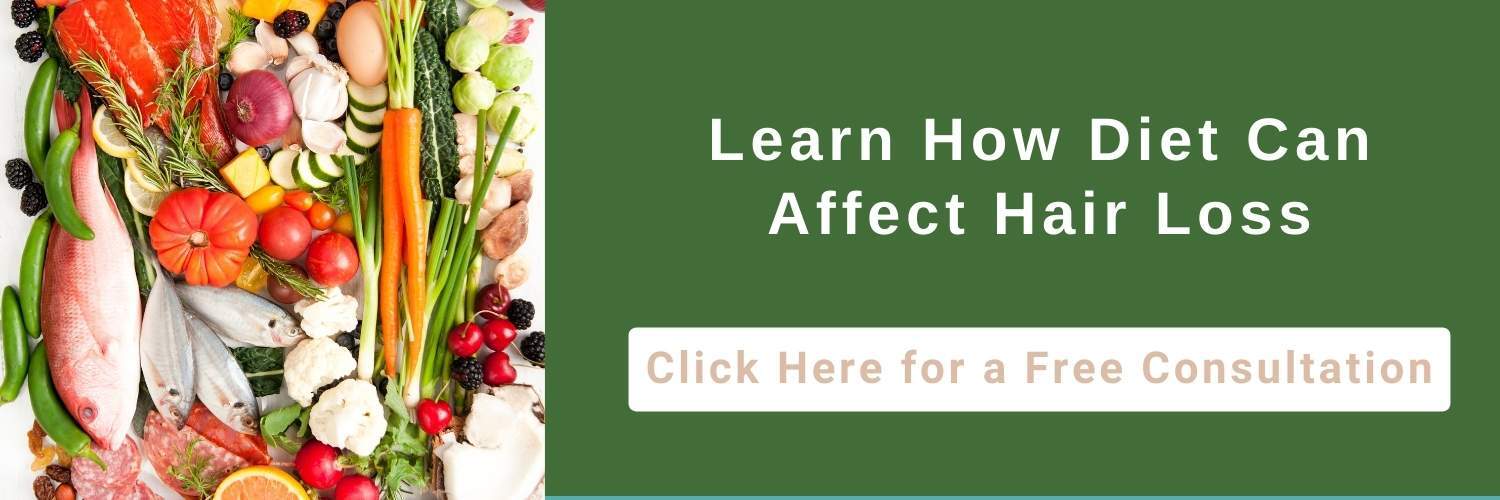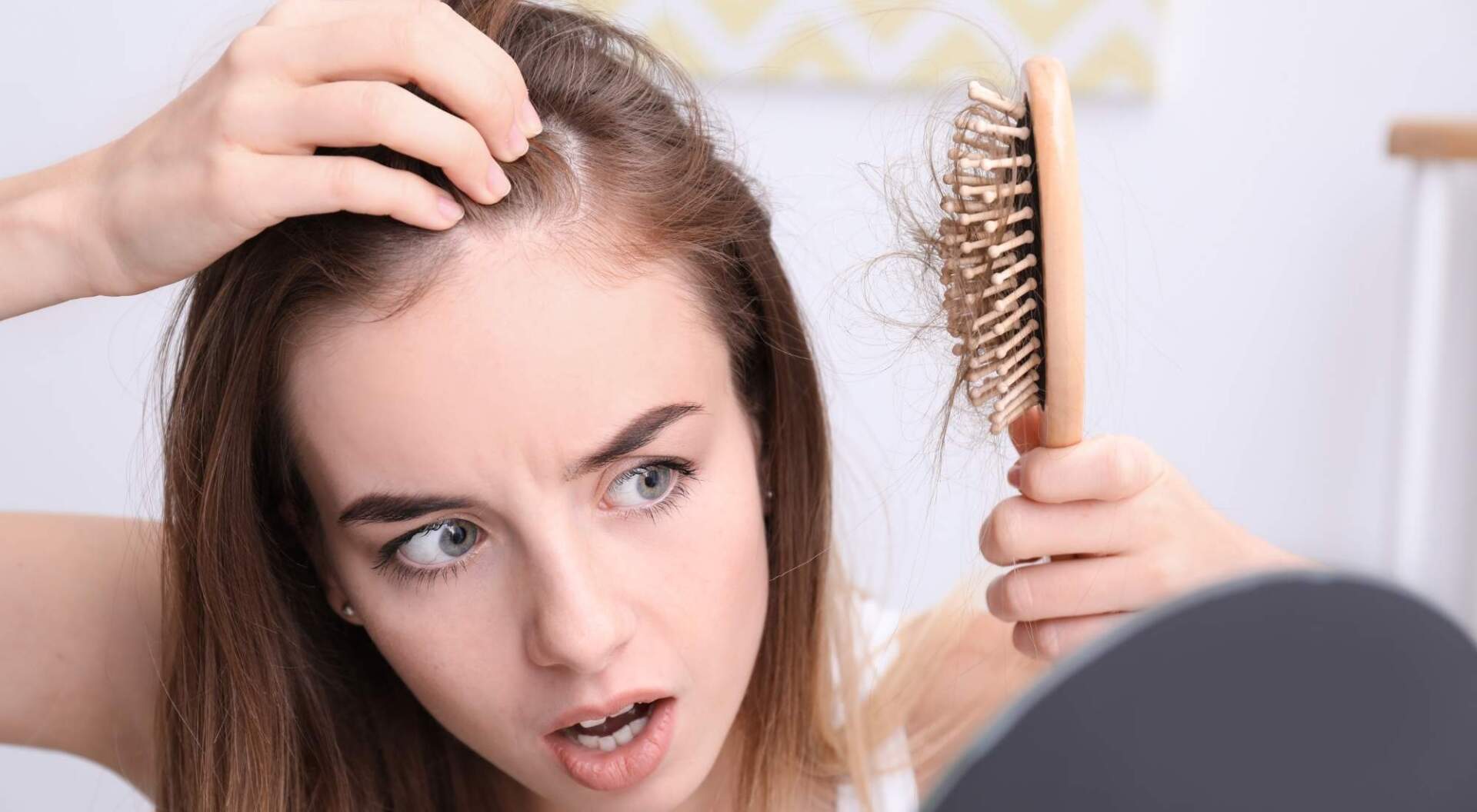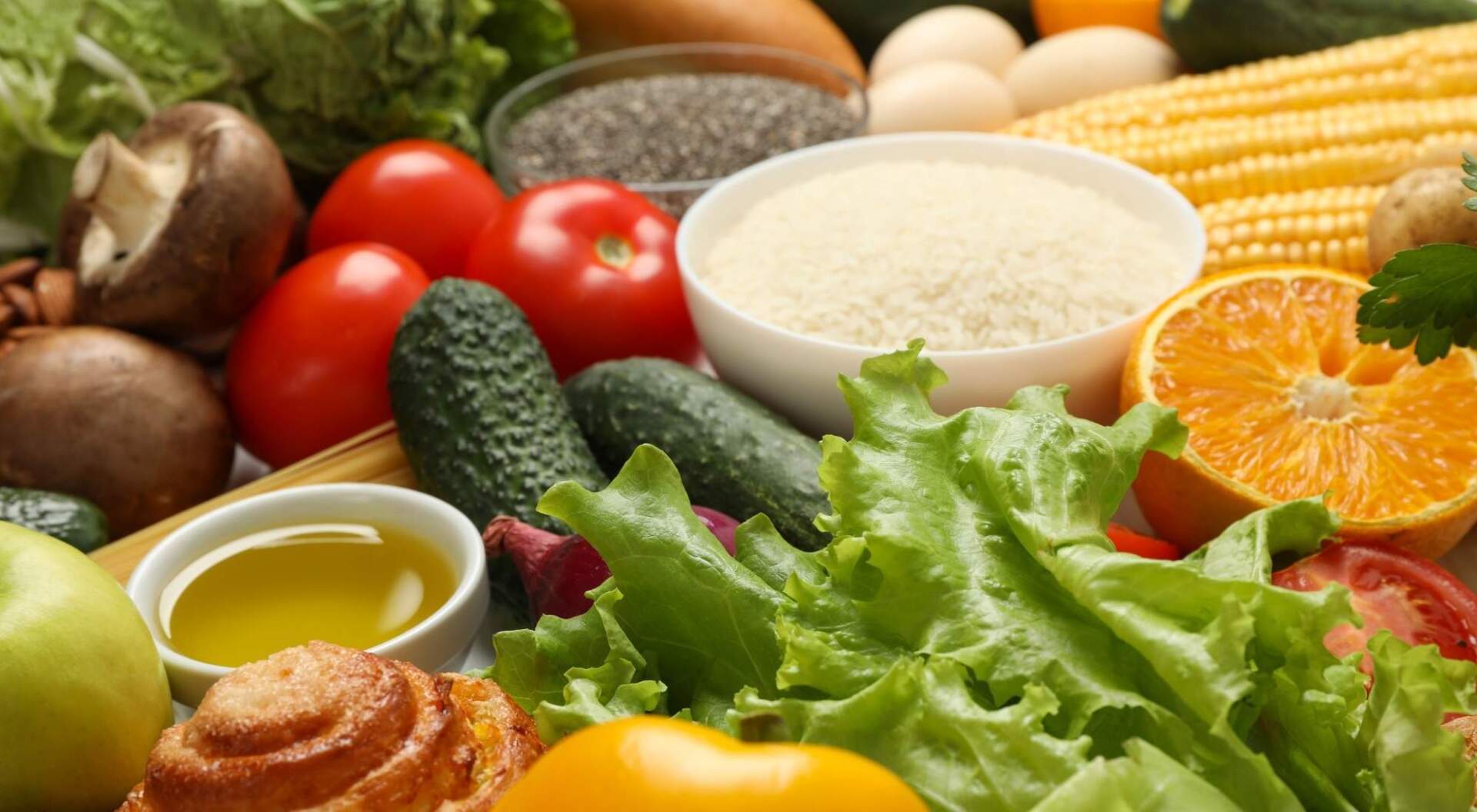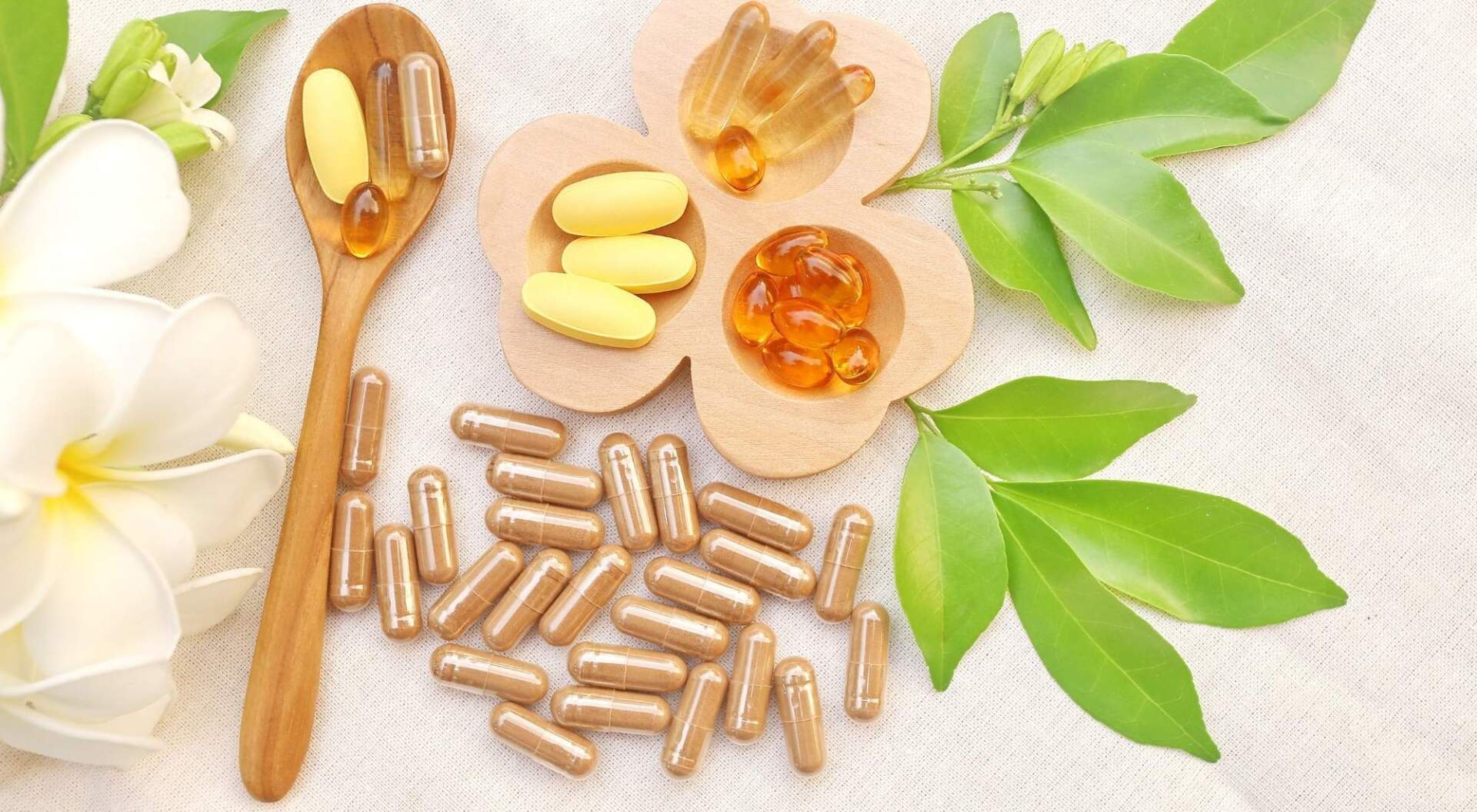Is Your Hair Falling Out? Malnutrition Could Be the Cause
"The content below is not intended to be a substitute for professional medical advice, diagnosis, or treatment. Always seek the advice of your physician or other qualified health provider with any questions you may have regarding a medical condition."
Are you realizing you've become a victim to your hair falling out? Your hairbrush is always full of loose hair, regardless of how often you clean it. You realize your hairline is thinning. But you're a healthy young woman — could you really be experiencing hair loss?
Hair loss can be traumatic for both your self-esteem and self-image.
Did you know an unhealthy diet can affect hair loss? When you take a closer look at your diet, you may find the culprit of your hair loss.
In this article, we will cover common questions like:
- Does your diet affect your hair?
- What nutritional deficiencies could be contributing to your hair loss?
- What other factors may be related to your hair loss?
- And more
Table of Contents
Can Lack of Nutrition Cause Hair Loss?
Every time you take a shower, you notice a large pile of hair at the drain. Although you might be expected to pull out some loose hairs during washing, the amount you gather seems excessive. It's beginning to make you wonder if you are really experiencing hair loss and what the cause might be. Reflecting on your lifestyle, you start to think, can malnutrition lead to hair loss?
Lack of nutrition is indeed a common cause of hair loss. Hair loss is a warning sign from your body that something is not right.
At HealthierU we use a non-invasive technique called Nutrition Response Testing to uncover the hair loss mystery. To help restore your hair to its former glory, we create a customized plan that emphasizes nutrition and whole food supplements.
10 Nutritional Deficiencies That Could Be Causing Your Hair Loss
When there is inadequate nutrition in a diet, the body must first deal with essential organs and muscle tissues to replenish its protein stores. Because hair is composed of proteins, your follicles will suffer since your body is reallocating its remaining protein supply to support your life-sustaining organs.
If you’re experiencing unexpected hair loss, analyze your intake of the following nutrients that are known to be associated with hair loss.
#1: Iron
Iron is essential for synthesizing hemoglobin, a component of red blood cells that carries oxygen to hair follicles. Without enough oxygen, the hair won’t grow, causing progressively thinner hair.
If a person does not have enough iron in their body, or if their body cannot use iron effectively, they suffer from iron deficiency. Women with heavy periods may also develop an iron deficiency.
The following foods are iron-rich and should be included in a healthy diet:
- Red meat, pork, and poultry
- Seafood
- Beans
- Dark green leafy vegetables, such as spinach
- Dried fruit, such as raisins and apricots
- Iron-fortified cereals, bread, and pasta; and
- Peas
#2: Zinc
Zinc is another nutrient that contributes to healthy hair. Zinc helps regulate hormone levels, which is why it is so effective in preventing and treating hair loss.
A zinc deficiency can cause hair loss and damage to any remaining hair, resulting in breakage.
Foods high in zinc that should be part of a healthy diet include:
- Crab
- Fortified breakfast cereal
- Lobster
- Pork
- Baked beans; or
- Dark meat chicken
#3: Vitamins A, C, D, & E
These four vitamins are crucial for maintaining hair and scalp health.
Vitamin A is essential for cell growth which is common in the scalp — the fastest growing tissue in the human body. Sebum, an oily substance produced by skin glands, is another product of Vitamin A. This oily substance helps keep hair healthy by moisturizing the scalp.
Vitamins C & E are potent antioxidants that prevent free radical damage to hair follicles, which can slow growth and age your hair. Vitamin C is also necessary for the production of collagen, an essential component of hair.
Keratinocytes are responsible for the metabolism of Vitamin D in the skin. Keratin is a protein in hair, nails, and skin that is produced by these skin cells. Keratinocytes in hair follicles have trouble regulating hair growth and shedding when the body lacks enough Vitamin D.
#4: Selenium
The trace element selenium is necessary for many cellular and bodily processes. However, a diet high in this nutrient can result in health problems, such as hair loss.
Foods high in selenium include:
- Brazil nuts
- Seafood; and
- Organ meats
It is worth noting that most cases of selenium toxicity are attributed to supplements containing selenium.
#5: Omega-3 & Omega-6
Omega-3 and Omega-6 are two essential fatty acids that can prevent hair breakage and make hair shine. Additionally, they are necessary to repair hair cells and form new membranes.
A 2015 study found that women who took a supplement containing antioxidants and Omega-3 and Omega-6 fatty acids experienced reduced hair loss and increased hair density.
Along with problems with hair, Omega deficiency symptoms include:
- Fatigue
- Trouble sleeping
- Deficits in concentration
- Joint pain
- Leg cramps
- Allergy symptoms; and
- Excessive ear wax
The simplest way to add fish oil into your routine is to eat more fatty fish, such as:
- Salmon
- Mackerel; and
- Herring
Another standard way to incorporate fish oil into your health regimen is to take dietary supplements.
#6: Protein & Amino Acids
In addition to being great for muscles, protein also promotes hair growth.
The building blocks of hair are amino acids, which help build strong and healthy hair. Keratin, the protein that makes up hair strands, comprises amino acids.
When protein levels are low, protein is used for life-sustaining functions, such as muscular-skeletal and cardiovascular systems, rather than hair growth.
In cases of chronic protein deficiency, the body makes sure that it can still build and maintain muscles and tendons by curbing the supply of amino acids to the hair follicles.
This results in:
- Poor hair health
- Hair breakage
- Stunted hair growth; and
- Hair loss
Some of the best sources of protein and amino acids include:
- Quinoa
- Eggs
- Turkey
- Cottage cheese
- Mushrooms
- Legumes; and
- Beans
#7: Folic Acid
Folic acid is primarily responsible for healthy cell growth. In addition to those found inside your skin tissue, you can also find them in your hair and nails.
A type of B vitamin, folic acid, is a synthetic form of folate. Foods naturally containing this nutrient are called folates. Folic acid is the synthetic version of this nutrient found in fortified foods and supplements.
Although called differently, folate and folic acid perform the same functions.
Some whole foods are natural sources of folate, such as:
- Beans
- Broccoli
- Citrus fruits
- Green leafy vegetables
- Meats
- Poultry
- Wheat germ; and
- Nuts
#8: Biotin
It has also been shown that biotin is linked to keratin production and can strengthen hair.
Biotin is added to some shampoos that claim to reduce hair loss, but there is no evidence to support this claim. Instead, consuming foods rich in vitamins and minerals is the best way to maintain your hair's health.
The best natural sources of biotin are:
- Meat
- Eggs
- Fish
- Seeds
- Nuts; and
- Vegetables
Keratin in your hair follicle will be strengthened by consuming these foods.
#9: Niacin
Blood circulation to the scalp is improved by niacin — healthy hair follicles and a healthy scalp is a result.
Niacin, or Vitamin B3, is a water-soluble vitamin crucial for internal and external health. All the components of your body require niacin.
Even though you should consume all complex B vitamins for general health, niacin is often used for beauty, particularly with skin and hair.
Niacin is found in the following foods:
- Liver
- Chicken breast
- Tuna
- Salmon; and
- Anchovies
#10: Antioxidants
In addition to promoting hair growth, antioxidants maintain collagen in the body or connective tissue of hair follicles. They also protect the scalp cells in the blood vessels, promoting healthy hair growth.
Antioxidants also prevent the destruction of melanin in the cortex of our hair. Because of this, antioxidants help to maintain the color and integrity of hair, making them strong and healthy.
Foods rich in antioxidants include:
- Berries
- Pomegranates
- Red wine; and
- Pecans
5 Other Factors That May Be Related to Your Hair Loss
#1: Crash Dieting or Calorie Restriction
You may experience side effects such as hair loss when you do not provide your body with what it needs.
Hair loss due to malnutrition is common and is associated with…
- Rapid weight loss
- Calorie restriction; and
- Nutritional deficiencies
… all of which are common to those who are on
crash diets.
#2: Smoking and Drinking
Hair can be damaged by smoking and drinking.
As a result of smoking and drinking, the hair cells become dehydrated. Consequently, the hair becomes thinner.
Smoking also damages hair follicles and interferes with blood circulation and hormone production in the scalp.
#3: Stress and Lack of Sleep
Both stress and lack of sleep can lead to hair loss.
Hair loss can be influenced by how you handle stress. When you are constantly stressed, your body cannot perform efficiently.
We produce a hormone called melatonin in our bodies. In addition to helping regulate your sleep cycle, it has also been shown to promote hair growth.
A decrease in melatonin levels, which is common during stress, can result in hair loss.
#4: Too Many Supplements
Sometimes too much of a good thing can be a bad thing. In this case, nutritional supplements can cause hair loss.
For example, taking too much Vitamin A and selenium can cause hair loss.
As a general rule, it is best not to exceed the upper recommendation limit for vitamins because too much can cause various health problems.
#5: Some Medical Conditions
Hair loss can be caused by many medical conditions, including:
- Pregnancy
- Thyroid disorders
- Anemia
- Autoimmune diseases; and
- Polycystic Ovary Syndrome (PCOS)
Skin conditions such as psoriasis and seborrheic dermatitis can also lead to hair loss.
How to Know When It’s Time to See a Doctor for Help With Your Nutrition and Hair Loss Causes
If you’re experiencing a major health problem, hair loss included, you might be aware of the changes in your diet or lifestyle that could be made to promote a healthier you.
However, despite all of the changes you’ve made, your hair continues to fall out.
It’s time to consult a doctor to get to the root cause of your hair loss.
HealthierU in Brooklyn, NY, Specializes in the Natural Treatment of Hair Loss
HealthierU is dedicated to helping our patients achieve their health and wellness goals.
Are you having trouble meeting your nutritional needs and are experiencing hair loss? Nutrition Response Testing can help you discover any underlying causes.
After we establish any underlying causes of your deficiencies, we will design a program that is unique to you to help you overcome the deficiencies by:
- Diet
- Whole food supplementation; and
- Lifestyle changes
Find out how Dr. Sergi can help you improve your health and wellness by contacting HealthierU today.






